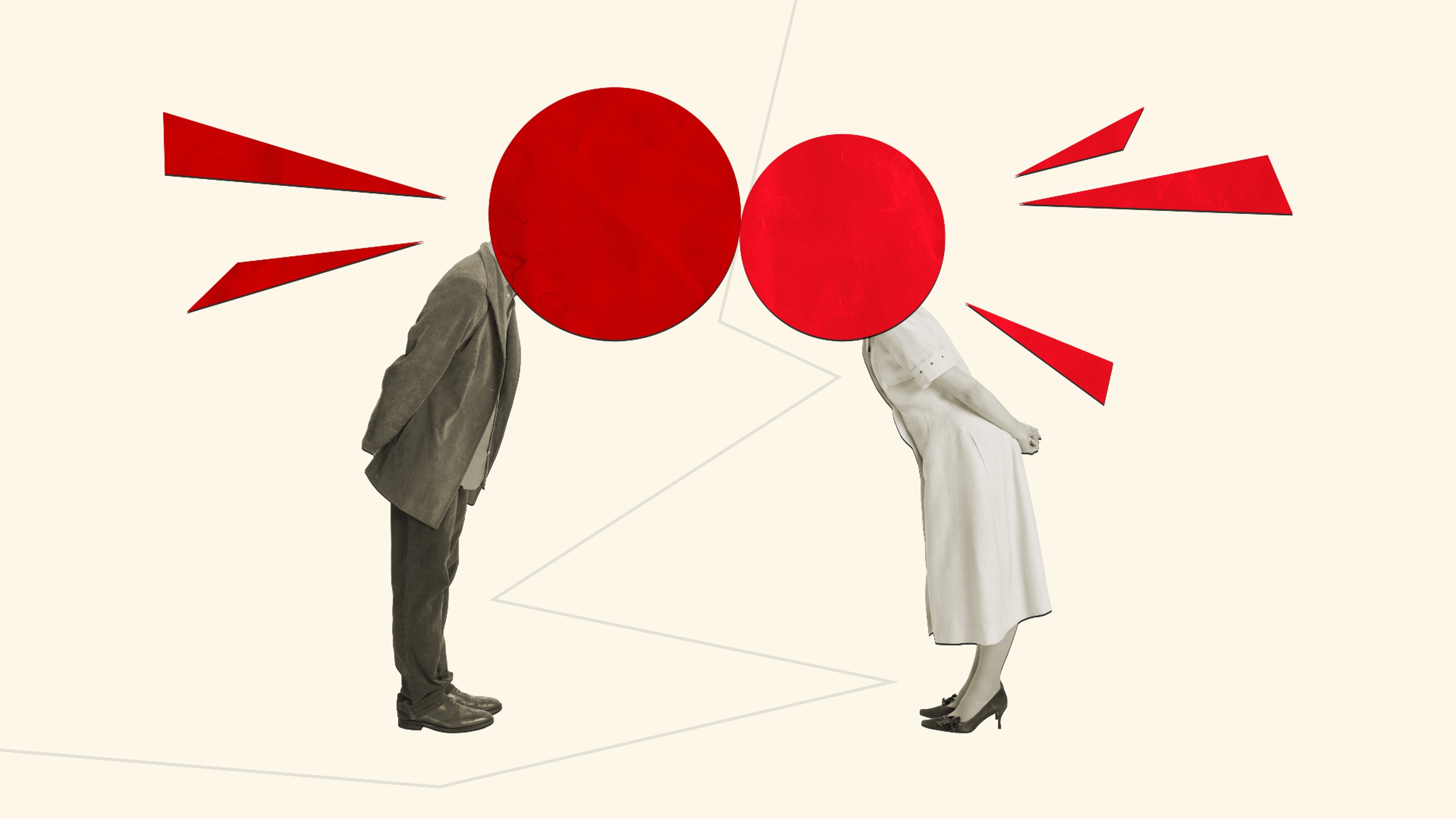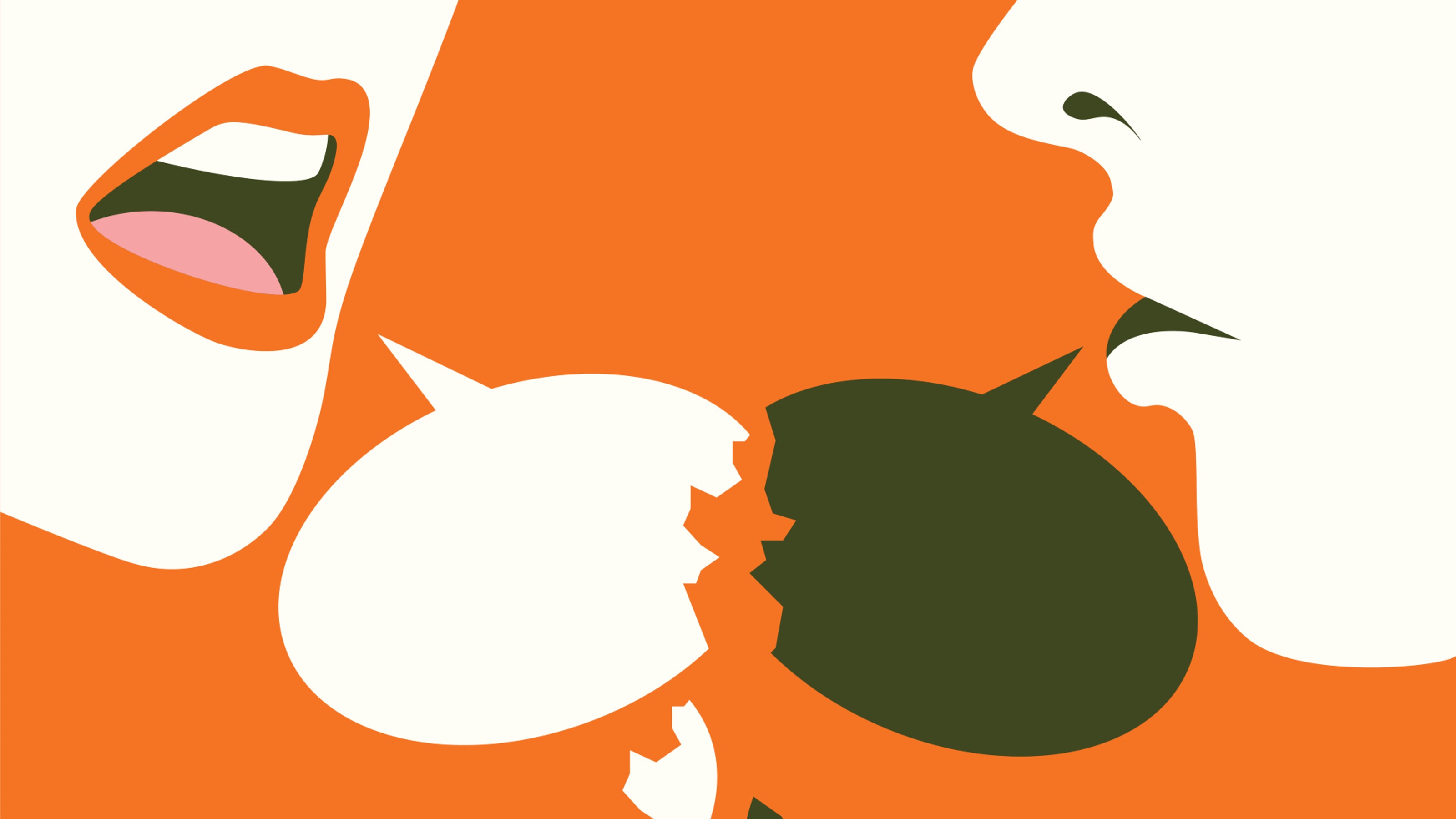6 strategies on how to apologize well — even though we all hate doing it

- Sometimes, nothing feels worse than having to apologize.
- Certain mental barriers inhibit us from apologizing even when we know we’ve done wrong.
- Here are six strategies to help you overcome those barriers and learn how to apologize genuinely.
We’ve all had things to apologize for. Whether on the playground or at the office, intentionally or not, we’ve hurt people. We’ve ignored or insulted others. We’ve disregarded feelings, told harmful jokes, and forgotten important dates. Sometimes, our trespasses have been far worse.
You would think with all this opportunity and practice — so much practice — that we all would be adept apologizers by high school. But no. Most of us, myself included, still suck at it.
For every person who apologizes with grace and poise, there seem to be ten others who would rather slide sandpaper between clenched teeth than admit to a mistake. Even when we do stammer out an apology, we are in the habit of hedging our responsibility with counterfeit regret. We shift the blame (“I’m sorry, but you started it”), make it conditional (“I’ll apologize if you will”), or present it as a masterclass in doublespeak (“I’m sorry if something I said offended you”).
This is a problem. According to Karina Schumann, an associate professor of psychology at the University of Pittsburgh and the director of its Conflict Resolution Lab, genuine apologies are “one of the most powerful tools” we have in conflict and relationship management. Research shows that apologies increase feelings of empathy, forgiveness, and gratitude. They can reduce stress and ease heart rates. They also foster relationship well-being and collaboration. Not a bad payout for sacrificing a little bit of pride.
But then why are apologies so difficult? Like so many other habits that are good for us, apologies must contend with our own mental barriers.
Sorry, not sorry
In a 2018 paper, Schumann scoured the research literature to determine why people may be inhibited from apologizing. She found that the foremost reason was also the most obvious: People won’t apologize if they feel they don’t need to. If the offender feels their actions were justified or the situation was out of their control, then they won’t be remorseful enough to apologize, even if the offended sees the situation differently. This difference in perspective results in what social psychologist Roy Baumeister calls the “magnitude gap.” Unless that gap can be bridged, no genuine apology will be forthcoming.
But even when people know they’ve made a mistake and hurt somebody, they may still remain silent in the face of their wrongdoings. Schumann found three mental barriers to explain this silence (though she notes that there may be more).
First, the offender may not be concerned with the relationship, especially if they have little empathy or compassion for the other person. This barrier could explain the rude behavior so frequently inflicted on service workers. Because these relationships are short-lived and one-sided, customers in positions of power often don’t care enough about the other person to apologize for harmful behaviors they would check elsewhere. But even in more intimate relationships, people who are more focused on themselves might see apologizing as not worth the effort.
The second barrier is the perceived threat to one’s self-image. Some people fear that apologizing will be both humiliating and proof that they aren’t a good, moral person. People with fixed mindsets or fragile self-images may be more prone to this barrier. And this fear isn’t completely divorced from reality. Some people who receive an apology take advantage of the situation with the relish of a boxer who sees his opponent on the ropes. But Schumann’s research suggests that apologies typically have the opposite effect. They reduce feelings of guilt and shame, help promote self-forgiveness, and heal relationships.
Finally, people may simply underestimate the effectiveness of their apology. They worry that the offense is too great or that the offended won’t forgive them. While this too is a possibility, the research again suggests that in most cases the opposite is true. In Schumann’s words:
“People have a tendency to overestimate the negative consequences of apologizing and underestimate the benefits of apologizing. But once we’ve actually apologized, we feel so much better, the other person feels better, and it can really have a positive impact.”
Six strategies for how to apologize
By recognizing these mental barriers, we hopefully can make it easier for ourselves to push through them and get to the hard work of resolving the conflicts that damage our relationships. Unfortunately, at this point, you’re on your own. As Schumann noted on the Speaking Psychology podcast, each apology will depend on the situation, the other person, the offense committed, how severe it was, your history together, your cultural norms, and so on. Sometimes, they can be as simple as, “I’m sorry.” Other times, they take dedicated time and effort. Either way, there is no formula or template to follow.
With that said, certain strategies will prove more helpful than others. In an interview with Big Think+, Dan Shapiro, an expert on negotiation and conflict resolution at Harvard University, offered six such strategies.
#1. Express honest remorse. For Shapiro and Schumann, this is the most important element of any apology. You must convey honest, heartfelt regret for the offense and the desire to see the relationship mended. “A real apology is not a fake one. That person with whom you’re interacting, they’re going to know if you’re telling the truth, if it’s authentic, and if it’s not,” Shapiro said.
If you feel an apology isn’t owed where the other person does, then a magnitude gap exists. You’ll need to engage in an equally honest conversation to close that gap and determine the best path forward for everyone involved.
#2. Acknowledge the impact of your behavior. People want to feel understood, perhaps especially when they are in pain. By acknowledging those emotions as real and the role you played in creating them, you express empathy for them and demonstrate their value to you.
#3. Accept responsibility. We have all heard politicians give counterfeit apologies that shirk responsibility. They are unsatisfying. When you hedge apologies in your relationships, they come off the same way. “You’re not saying, I did this and this was wrong. You’re saying I’m expressing remorse, I’m expressing some sympathy for what this person is going through, but I’m not going so far as to take accountability for it. And people do not like to receive apologies like that,” Schumann said on the podcast.
#4. Commit to not repeating the offense. This is not the same as saying you will never reoffend. Obviously, that is impossible. Instead, commit to tempering the behavior that the other person found troubling. If you are quick to anger, promise to work on self-control. If you belittled their opinion on an important matter, discuss how you can show more respect next time.
#5. Offer reparation. Repairing any relationship will depend on its nature. In a marriage, reparations may mean washing the dishes for a week to make up for your ignoring the housework. In a friendship, it may mean buying the coffees so you can talk about the offense. In more formal or work situations, it may mean offering a public apology or even legal amends.
#6. Stop talking. Shapiro said it best: “After you say it, shut up. I mean, too many people after they apologize, they say, ‘I’m so sorry, honey, but… there was traffic and this and that.’ Guess what? Your apology now has turned into a defense, not a form of reconciliation.”
But even if you nail the apology, don’t think the conflict is over automatically. Sometimes, it’s only the beginning of reconciliation. The other person may need time to forgive, or forgiveness may not come at all. That’s okay, because a true apology doesn’t come with the expectation of forgiveness. It’s not a confession by which you clean your conscience by unburdening your sins on another. A true apology is a gift to another person that says you’re sorry you hurt them, that the relationship is important to you, and that you will do better in the future.
Learn more on Big Think+
With a diverse library of lessons from the world’s biggest thinkers, Big Think+ helps businesses get smarter, faster. To access Dan Shapiro’s full class for your organization, request a demo.





